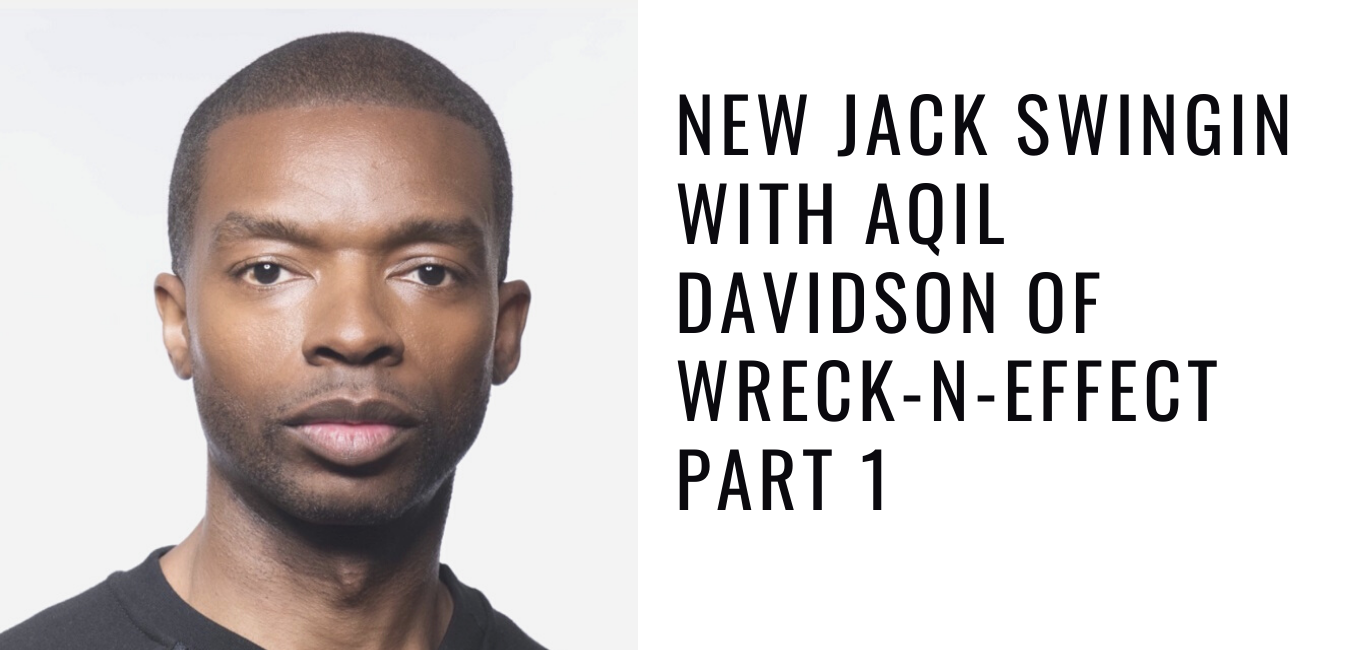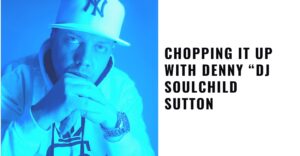
Add A Dash Of Heat And Mix It With Crooning: Inside The Mind Of Singer Turned Chef, Vocalz Iz
my latest interview guest Vocalz Iz. The singer has just embarked on his latest business venture and took out the time to chop it up with me.


Aqil Davidson took time out on working on new music to chop it up with Reviews & Dunn. This is the first of a two part interview.
Reviews & Dunn: Growing up who were some of your early musical influences?
Aqil Davidson: My earliest musical influence was Run-DMC, after hearing “Sucker MC’s” on the radio. I knew of Hip-Hop artists outside of them, but the song’s energy blew my mind as a kid. In amazement, I remember feeling like, “What the hell was that?” That’s when I knew I wanted in on Hip-Hop. That was the first time I felt Influenced by Hip-Hop. All my childhood interests shifted to how to make music. As I got closer to the dream, I got into artists like Rakim, Kane, and Kool G-Rap.
Reviews & Dunn: How did you end up linking with Markell Riley, Keith Riley and Brandon Mitchell to form Wreckx-n-Effect?
Aqil Davidson: Brandon, Markell, and I were already childhood friends growing up in ST Nicholas Projects in Harlem. I don’t remember the first day we met as kids. Our parents lived in the same building and the next building over, so we literally grew up into our encounter. By the time the 3 of us decided to give music a shot, doing it together was a natural progression. We’d hang out downstairs in the Riley apartment chilling, playing mixtapes, and talking about girls, or plotting one get money scheme or another. Teddy was steadily gaining momentum as a producer and usually in their living room, creating music. Seeing his dream unfold before our eyes lead us to believe a legal route to the good life was in our reach as well.
Reviews & Dunn: As a quartet the group released a self-titled EP in 1986 under the tutelage of Gene Griffin on Atlantic Records. Why did you all decide to leave Atlantic records?
Aqil Davidson: Gene Griffin was the music mogul of our camp. He had the business/record producer experience and the connections with various top label execs. Sylvia Rhone (then head of Atlantic) was one of those connections. Ultimately Gene wasn’t happy with how we were being handled. He negotiated us out the Atlantic contract.
Reviews & Dunn: When did Keith “KC” Harris depart the group?
Aqil Davidson: Keith KC was only with us briefly during our debut EP on Atlantic Records. Teddy felt since KC looked the part and had prior experience making a record, and he had great vocal presence, it should work. That was a misstep. You can’t mix drastic age differences among young people like that. KC was smart to seize the opportunity but basically the merger placed him too far outside of his peer group. Overall we were at different phases of life and into different things. Furthermore, I had a style that was emerging and untapped anyway. So in hindsight, the mixture was only doing us the disservice of not being honest to our youth. Yes we made our first record but it didn’t get much traction. Little we knew there was a new expression being restrained. So about a year and a half later we were back to the original 3. I’d been developing my sound all the while so by then, the summer I would turn 16, we began working on what would become the album containing “New Jack Swing”. That song became a #1 Billboard rap single.
Reviews & Dunn: September 12th 1989 was the release of the second self-titled album led by the singles “New Jack Swing” and “Juicy”. What was your reaction when you first heard the beats for those songs?
Aqil Davidson: When I first heard the beat to “New Jack Swing,” I literally woke up to it. Teddy was combing through different ideas one evening, and at some point, I dozed off while sitting on the sofa. I jumped up like Whoa! Give me a tape of that. I went to put the lyrics together. “Juicy” was dope music, but I wasn’t crazy about the direction Teddy wanted me to take the lyrics. It was way too smooth, and that wasn’t who I was.
Reviews & Dunn: Did the untimely passing of Brandon Mitchell play a part in the delay between the second and third album?
Aqil Davidson: Brandon passed in Aug 1990. That was absolutely flattening in many ways. B meant a great deal to the music and to the relationship between us all. It took a while to sort through the new reality.
Reviews & Dunn: Prior to releasing the third album Hard or Smooth, you had a chance to work on Michael Jackson’s “Dangerous” album? How was it working with the King of Pop?
Aqil Davidson: Working with Michael was so surreal. That was one of those occurrences in life that exceeds your wildest dreams. The idea that you’re casually moving around in the same environment with this titan is challenging. To comprehend how your life leads to this moment. Mentally I was caught somewhere between disbelief, get the job done, and don’t I still have a right to be an MJ fan. Ultimately, Suspension of cognition had to take the wheel. Way too much to process. In Harlem, everyone inherently feels they’re somebody noteworthy, or at least should be, lol. So I had to tap into that upbringing to level off some of the fascinations. My calm composure was turned all the way up to the highest intensity the whole while. Then, to up the WTF ante. One morning while still in Cali, I’d just awoken moments before the phone rings in my room. I’m being informed Michael had just invited us to spend the entire day at Neverland. We’d be picked up by limos and heading to his ranch the following morning. And further that I could invite someone else. From food service to the amusement park to the safari, the day was storybook worthy. Terminator 2 was the next big release to hit the box office. As you can imagine, MJ already had the film in a standalone theater house on his property. He played host/chaperone to 6 of us. Michael was the quintessential example of the more significant your celebrity, the greater your humility
Reviews & Dunn: You also worked on another big album in 1992, Bobby Brown’s Bobby album. How was the experience working with the “Brown Bomber”?
Aqil Davidson: Bobby Brown was and is one of the purest examples of authenticity you’ll encounter in this music business. To know Bobby is to see the truth of how he feels about you. There are no cover-ups or representative personalities in him. He’s just authentic. Sort of’ like a friend you’ve always known who happens to be famous now. That’s how you feel around him, so it was a pleasure working on his project and being around him in the studio. And he is hilarious. Bobby is funny as hell because you never know what’s going to come out of his mouth that he’s willing to be transparent about. His celebrity is secondary to his truth. That’s rare in this industry.
Be sure to check out Part 2 out my interview with Aqil, where he discusses “Rump Shaker”, the group’s fourth album and what he planned for 2020.


my latest interview guest Vocalz Iz. The singer has just embarked on his latest business venture and took out the time to chop it up with me.

One of the greatest things in life is when you can interview one of your on-line friends as they live out their dreams. Shout out to my man Denny “DJ Soulchild” Sutton who blessed my platform with an interview.

Hip Hop Head and author Justin Jones is currently in the final writing stages of his second book ‘Hip Hop Was Dead: The State of the Culture 2003-2007’. That book covers a 5-year era of Hip-Hop and how the culture was affected during that period. Mr. Jones took some time out, though, to chat with me about his debut book Street Dreaming: Reading Nas’ It Was Written.
Reviews And Dunn is a unique blog showcasing all things cinema, music & theater.